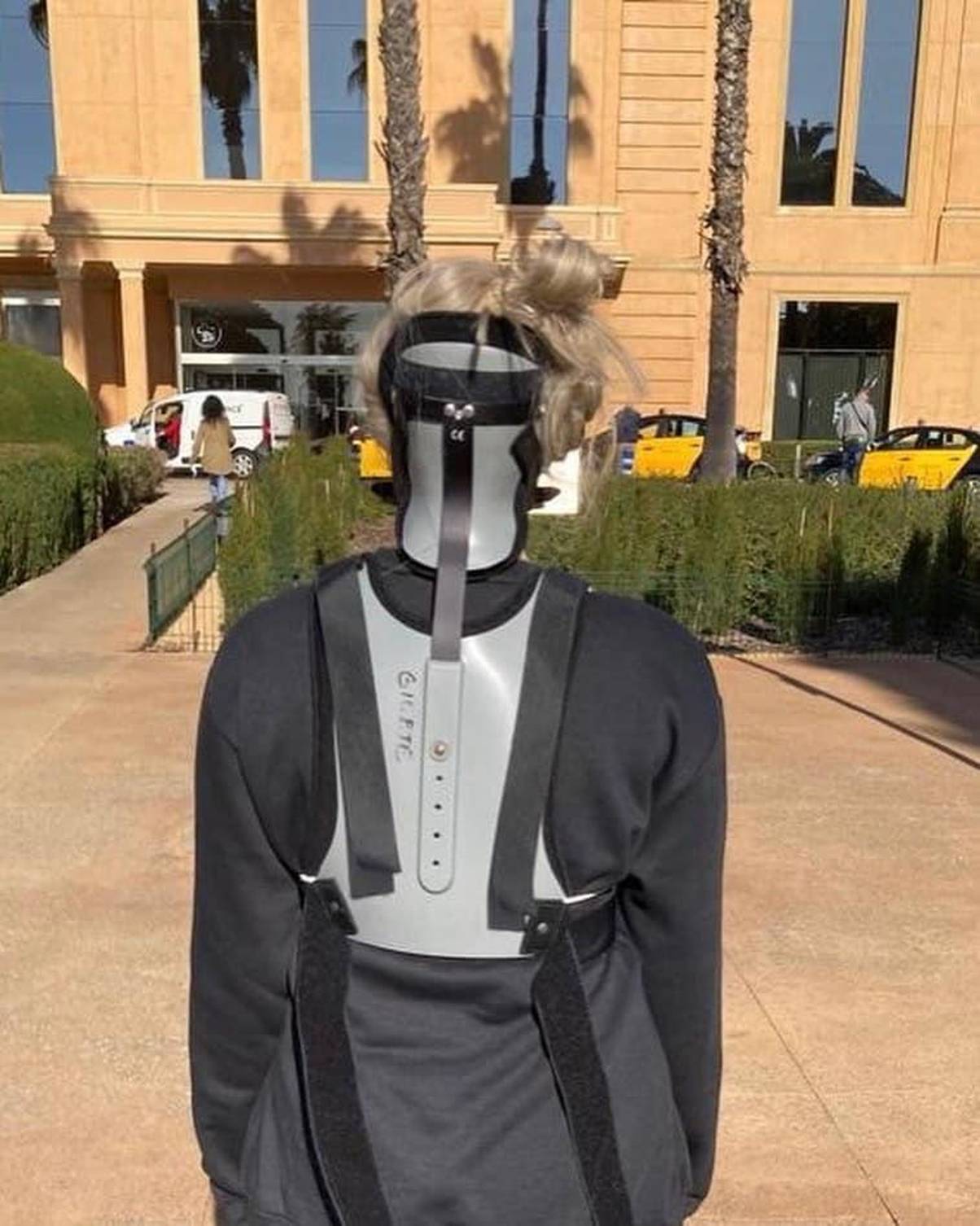
A woman who has spent years debilitated by a chronic condition that she first thought was a ‘common cold’ later received a diagnosis that her head was not properly attached to her spine.
Amy Ironside Wood, 38, became unwell in 2017 after her daughter Willow came home from nursery with glandular fever.
While Willow got better in a week, Amy’s symptoms ‘haven’t lifted since’, though at first she thought she ‘had a little cold’, according to the Mirror.
However, she soon felt ‘weak’ and ‘faint’, and ended up having to crawl to her daughter’s bedroom if she woke up during the night, and she ‘would feel like I was passing out repeatedly’ too.

She said: “I felt a level of fatigue that I could never have imagined as a healthy person – my heart would race when I would roll over in bed as if I’d just run up a flight of stairs.
“My legs were so weak that I felt my knees would buckle after standing for just a few minutes.”
After six months and a series of blood tests, the Nottingham woman’s doctor diagnosed her with ME (myalgic encephalomyelitis).
“I spent every waking minute researching my condition – if I could work out what was actually happening in my body then maybe I could find a way to treat it,” Amy said.
She explained that she’d tried ‘every diet, supplement and medication’ she could find that was supposed to help with ME until she saw a talk from American filmmaker Jennifer Brea, who claimed her ME had gone into remission after neurosurgery.
“I cannot explain the excitement I felt when I thought that there was a cure – even if it meant going through major surgery, I would have done anything at that point to get my life back.”

In her search for answers, Amy got help from a specialist in Barcelona, who in 2022, diagnosed her with craniocervical instability (CCI), a rare medical condition where the skull is not securely attached to the spine.
Treatments for the condition are expensive and range from ‘brutal’ surgeries to stem cell injections, and Amy is hoping to raise the money as she feel like her life has been ‘put on hold’ for almost a decade now.
In an effort to raise the money she launched a clothing brand called Not Dead Apparel in 2023, which sell items daubed in slogans such as ‘Tired Girl’s Club’, ‘Wish you weren’t here’ and ‘Live. Laugh. Lie Down’, where all the profits go towards paying for her treatments.
While she runs the business, someone else does the embroidery as Amy said her ‘body just isn’t in a place to do anything physical right now’, and sales picked up last year after an influencer was spotted promoting one of her hats.

In October 2024, Amy also received a diagnosis of a tethered spinal cord, which is where the spinal cord is attached to the tissue around the spinal canal and can’t freely move.
The operation to free her spinal cord could cost between £17,000 and £20,000, and she is hoping to get that done this year, while she also needs to consider which treatment she would want for her CCI.
One treatment would take stem cells from bone marrow and inject them through the throat into the ligaments at the back of the skull, while the other procedure would fuse her skull and her cervical spine, which would cost her between £80,000 and £200,000.
She said that ‘people barely remember the true me’ and she feels like ‘I grieve for her most days’, on some days she can barely get out of bed while on others she has enough energy for an hour or two.
“I can’t take my daughter to the park or for days out, I can’t be in restaurants or cafes because the ambient noise worsens my symptoms a lot,” Amy explained of her situation, saying the ‘social isolation’ was the hardest thing about it.
In addition to the profits from Not Dead Apparel, there is also a GoFundMe set up to help cover the costs of the treatments Amy needs, which you can donate to here.